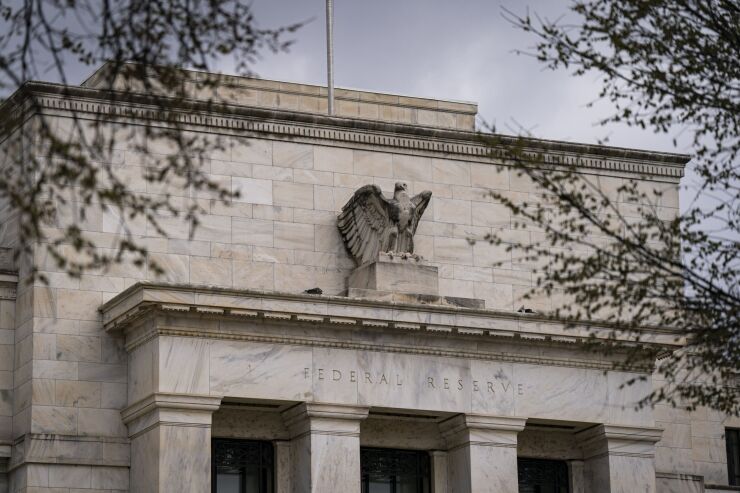
Bank regulators are backing down from
The Federal Reserve, Federal Deposit Insurance Corp. and Office of the Comptroller of the Currency will propose rescinding the
In the statement, the agency cited concerns about "
The 2023 rule was the first substantial change to the banking agencies' implementation of the 1977 civil rights legislation in roughly three decades. It had been years in the making, advancing in
The original CRA framework sought to measure how well banks engaged low-income communities immediately surrounding their branches, based on the assumption that most deposits came from customers in the immediate vicinity of those physical locations. To account for the advent of online and mobile banking, the agencies' new rule expanded CRA assessment areas to where banks do significant business.
In February 2024, several banking groups — including the Independent Community Bankers of America, the American Bankers Association, the Texas Bankers Association and Independent Bankers Association of Texas — sued the agencies in federal court. They argued that the changes increased the complexity and compliance costs associated with the CRA by creating "boundless" assessment areas.
The move to withdraw the final rule is the latest sign that banking agencies are questioning how well their rules can
Late last year, the Fed announced its intention to
The rescission of the CRA rule is also the latest defeat for the Biden era regulatory agenda under the Trump administration. Earlier this week, the Senate voted to block the Consumer Financial Protection Bureau's
Various lawsuits and enforcement actions against banks and other financial institutions have also been dropped in recent weeks, including the SEC's case against Kraken, which was
The banking agencies' announcement did not specify when they would begin the process of withdrawing the new CRA rule. In the past, Fed Chair Jerome Powell has said the central bank would hold off on major regulatory undertakings until new regulatory heads were installed at the FDIC and OCC.






